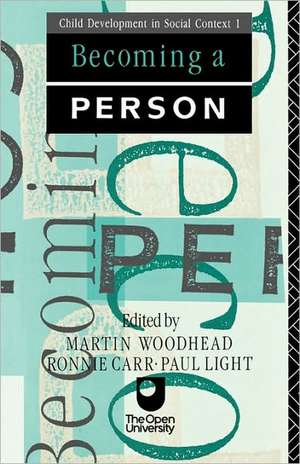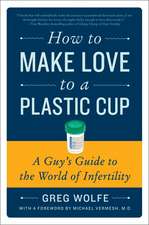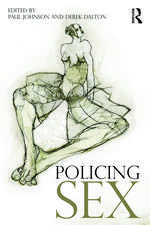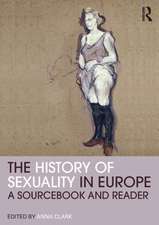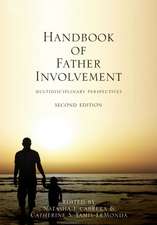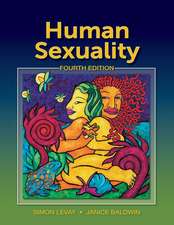Becoming A Person
Autor Martin Woodheaden Limba Engleză Paperback – 3 ian 1991
Preț: 308.76 lei
Nou
Puncte Express: 463
Preț estimativ în valută:
59.08€ • 61.85$ • 48.89£
59.08€ • 61.85$ • 48.89£
Carte tipărită la comandă
Livrare economică 05-19 aprilie
Preluare comenzi: 021 569.72.76
Specificații
ISBN-13: 9780415058292
ISBN-10: 0415058295
Pagini: 372
Ilustrații: 1
Dimensiuni: 138 x 216 x 20 mm
Greutate: 0.43 kg
Ediția:New.
Editura: Taylor & Francis
Colecția Routledge
Locul publicării:Oxford, United Kingdom
ISBN-10: 0415058295
Pagini: 372
Ilustrații: 1
Dimensiuni: 138 x 216 x 20 mm
Greutate: 0.43 kg
Ediția:New.
Editura: Taylor & Francis
Colecția Routledge
Locul publicării:Oxford, United Kingdom
Cuprins
1: First Relationships; Introduction; 1: Early Social Development; 2: Infant–Mother Attachment and Social Development: ‘Socialisation' as a Product of Reciprocal Responsiveness to Signals; 3: The Development of Affect in Infancy and Early Childhood; 4: The Father's Role in the Neonatal Period; 2: The Process of Development; Introduction; 5: Cognitive Foundations and Social Functions of Imitation, and Intermodal Representation in Infancy; 6: The Parental Frame; 7: The Effects of Postnatal Depression on Mother–Infant Relations and Infant Development; 8: The Social Context of Development; 3: Relationships and Early Learning; Introduction; 9: The Language of the Mother–Child Relationship; 10: A Cultural Perspective on the Transition From Prelinguistic to Linguistic Communication; 11: Culture and Early Social Interactions; 12: Nature and Uses of Immaturity; 4: The Construction of Identity; Introduction; 13: The Reconstruction of Social Knowledge in the Transition from Sensorimotor to Conceptual Activity: The Gender System; 14: Children Caring for Babies: Age and Sex Differences in Response to Infant Signals and to the Social Context; 15: The Self-Building Potential of Pretend Play, or ‘I Got a Fish, All by Myself
